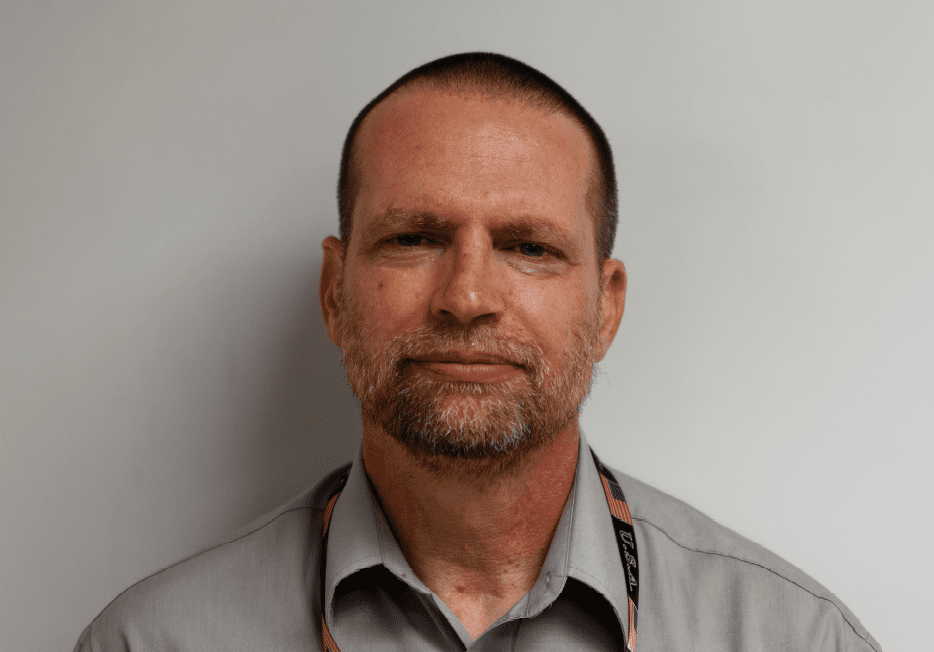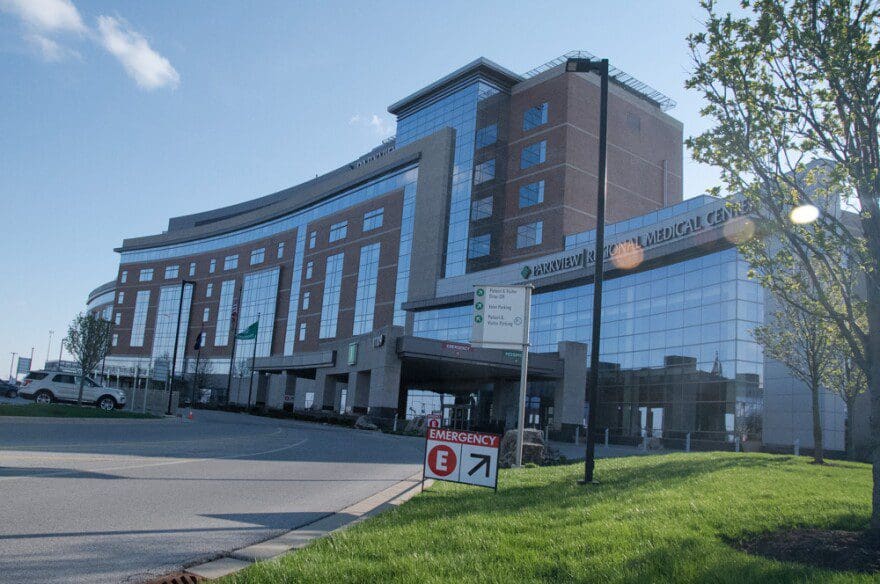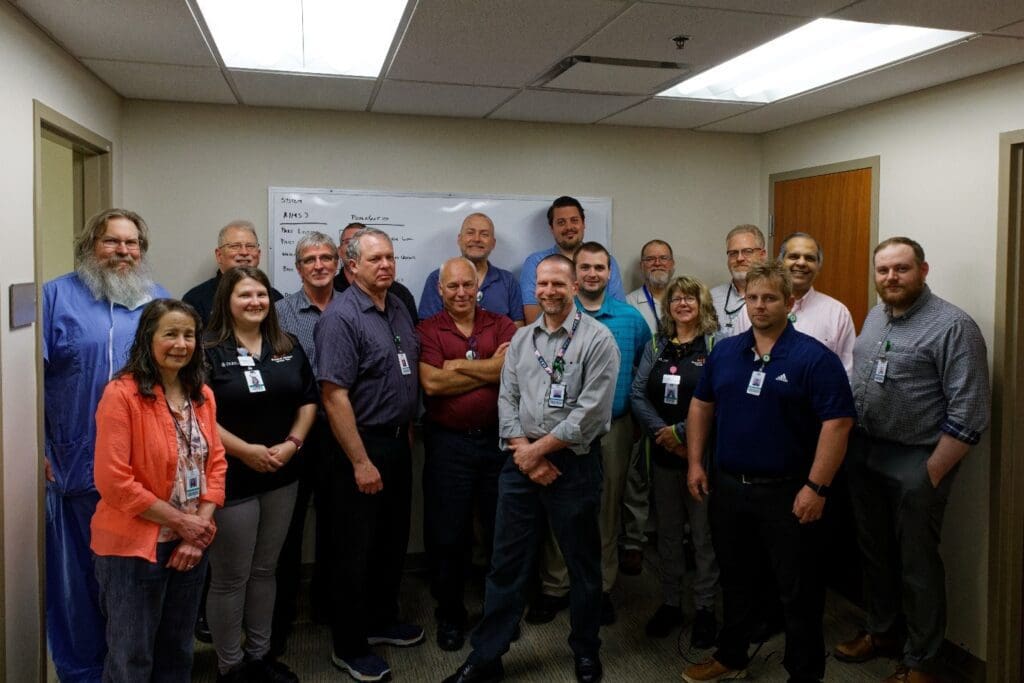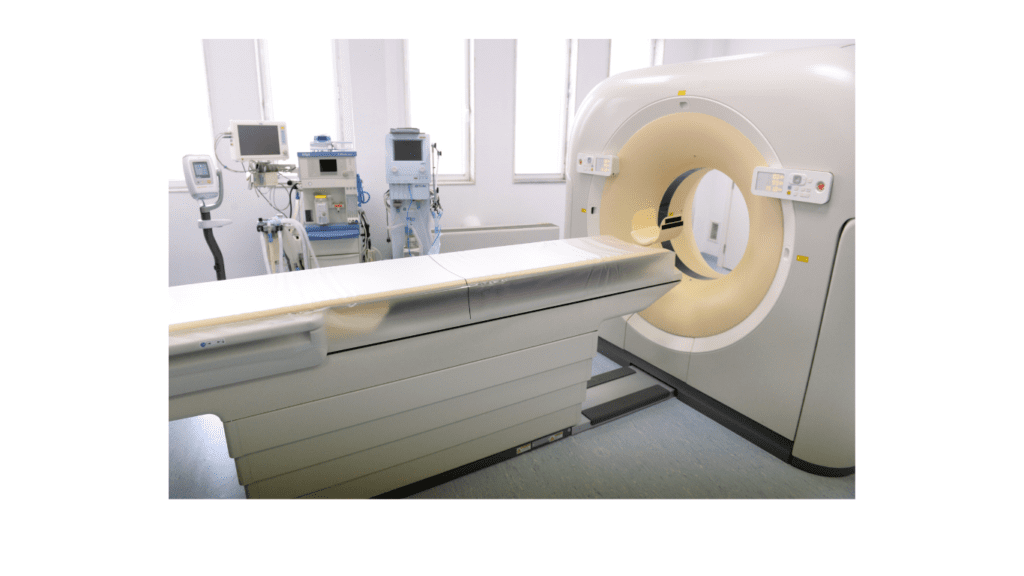Working with a servant’s heart and a willingness to care
In any medical facility, there is a whole additional army of people who are key to things running smoothly. They are the Biomedical Engineers who fix, service and upgrade all the equipment 24/7. Here an experienced Biomed shares his knowledge.
Paul Neher will celebrate 24 years of being a Biomed in September this year. He is the Supervisor of Biomedical Services at Parkview Health centred in Fort Wayne, Indiana. Paul has shared his experience and story here.


Background and path to Biomedical engineering
Could you give a brief description of your background and what led you to study and work in engineering? Were there any childhood interests which were a factor?
I have been working in Biomedical engineering for almost 24 years. Before that, I never knew this field even existed.
I came from a background of mechanical repair and industrial machining until I lost the sense of touch in my hands. I went to school to study electronics and had a professor who told us:
“If you want to be secure in your job for the rest of your life, get into healthcare.”
A few weeks later I saw an ad in the paper for something called a Biomed. I applied, remembering what my professor told me, and the job was mine. A few years in, I realized for the first time in my life that this was my calling. I felt the difference between a job and a career. I cannot imagine doing anything different.
You’ve kept on studying – how have you balanced this with working in a demanding job?
Honestly, I am not sure. My wife and I determined my career plan when I turned fifty. We realised that I had a long way to go, and wanted a different trajectory.
I managed my bachelor’s degree through DeVry, which let me take just one class at a time at an accelerated path. It was all online, which allowed me to study around on-call and family schedules. I had to remind myself to pace myself and that it was a marathon and not a sprint. Now I am working on my masters to complete that final step.
Inspiration
Has there been a particular person who has inspired you?
Not to use a cliché, but I would have to say my wife. Even though all this has been hard on her and the kids, she helped me chart the course for this phase of my career and education. She has encouraged me on through all of it. She is my constant cheerleader, even when I am studying until midnight.


Becoming a Certified Biomedical Equipment Technician (CBET)
How important was it to you to become a CBET?
To me, it was/is everything. There was no monetary gain or reward, I had to do it for me. It was necessary to both prove to myself what I felt I knew, but also professionally necessary to validate myself as a technician. The piece of paper doesn’t make me a better technician. The effort and desire to keep it does.
What advice would you give to someone who is thinking about gaining this qualification?
If this is a career field for you, it is the next logical step in your path as a professional. The test isn’t the important thing, it’s what you do every day to grow personally and professionally to KEEP that certification that really matters. Keeping the certification validates your effort and desire above and beyond your work mandates. Whenever I get an applicant and they show their CBET, I look at how long they have had it? is it current? Or did they let it expire?
Typical day
What’s your typical day like?
As a supervisor, it’s quite a bit different than it was as a tech. I start my day running the daily status report for my techs so they can see the big picture for the month’s PM (Planned Maintenance) completion percentages. That report goes out with any other pertinent news of that day to keep everyone informed (we have 32 techs over 8 facilities).
I wander through the shop and check to see if my techs need anything. I also attend meetings and try to manage the day-to-day operations so my techs can keep busy doing what they do best. My objective is to eliminate barriers so that they can succeed. If time permits, I work on equipment and projects to share the load if I can. Another job is to take care of tasks that would prevent them from being able to focus, such as emptying trash, breaking down boxes, etc.
Hands on and support
How much of your time is spent ‘hands on’ and how much managing and team leading?
One of the biggest changes for me moving into supervision was setting down my tools.
My office is across from the decentralized rack, so I can grab items needing repair if time permits. But generally, only 10-25% of my time is working on equipment. We have some open positions now, so I have an excuse to work alongside my teammates and get my hands dirty, which I don’t mind. They need to know I can and am willing to … and it helps me keep my skills sharp.
Which other people in the workplace give you support?
I have the full support of my leadership (Manager and Director). We have support members who handle contracts, parts, and administrative tasks. I have good relationships from EVS (Environmental Health Services), decentralized techs, and facilities.


Most challenging part of the job
What do you find most challenging when you are working – technical side or people/other staff?
The thing I find most challenging is time management. I am still relatively new to this role (only a little over eight months in) and there are many demands from many different angles. There are:
staff issues
projects
workload balancing
day to day requirements
emergencies
last-minute issues which crop up from various directions
So far, I have been able to get through, but there is always the fear that something will slip through the cracks. That skill set will work itself out in time, I am sure.
What has been your most challenging job to date?
Hiring staff is my biggest challenge. We had a small run of staff members being hired away by manufacturers and other departments. Finding replacements in this era of Biomed shortage has proven a constant out-of-the-box exercise. The issues I look at are:
retirement dates
shortages of skilled Biomeds
lack of graduating classes
the need to train new Biomeds from scratch.
I am even talking with high school career classes to plant the seed for future members.
Have you ever arrived on site and found that it’s been much easier than you expected? For example, have you just needed to switch on a machine?
Switch on a machine, plug in a power cord, reset a breaker. Yes, absolutely.
We joke about it a lot in the shop, but staff members are ridiculously busy. Since COVID, many are burnt out, and the last thing they want to do is troubleshoot with us. There are exceptions of course. Sometimes we need to remember to show each other a whole lot of grace and help one another without judgment.


Making a future star
What sort of personality traits and skills are ideal for this career?
I know this will sound preachy, but what this field really needs are people who have two things:
A servant’s heart
The willingness to do what needs to be done to care for people
Technical aptitude and a diagnostic mind are huge, but those skills can be taught. I can teach IT. I can teach Biomed. What I cannot teach is the desire to put in effort and serve.
Apart from a strong technical background, what are the three most important skills to have?
Aside from a servant’s heart as a foundation, the ability to:
troubleshoot the root of a situation
communicate to various audiences effectively
remain functional under pressure
Team leadership
How do you motivate your team?
Everyone has different motivators and trying to learn what they are, on an individual basis, is key. Generally, I find that being transparent, communicating clearly, and being honest are essential. Levity helps in small doses. Joining the team in its struggles and sharing the load goes a long way. And then, simply, recognizing their efforts and showing appreciation will get the team through many hardships together.
How do you support someone in your team when things have gone wrong because of a mistake?
Wow, who hasn’t made a mistake in this field? In my years, I have made quite a few. It’s important to be humble enough to recognize that about yourself, admit the same to your co-workers, and give them grace.
More on getting the best from your team is in an earlier blog:
How Rhiannon Thurmond supports her team of engineers when they are in the field
The future of Biomed
Biomedical societies
I would encourage those interested in this career field, as well as those already in it, to become active with your local Biomedical society. Most societies meet at least annually and can be a great resource for Continuing Education (CE) credits for your certification retention. They can also help you to network with others in your state and region. Society conferences also keep you in the know about vendors and technology.
Trade shows
Attend trade shows. I know we all have home/work/life balance to contend with. However, conferences and shows allow you to:
further your network
learn from fellow Biomeds about issues
discuss events facing our career field
meet new vendors
make new contacts.
Social Media
Network with other Biomeds via LinkedIn, podcasts, YouTube, The Field Engineer community, or other social mediums. There are some incredible people in our field who are great sources of information and advice. Put yourself out there and mentor an aspiring Biomed or someone new to the field. You never know when you will meet the next Biomed rockstar! I have been so blessed to have met so many.
Younger generation
Reach out to the younger generation. High school, Tech school, and College students need to know that Biomed exists. How many of us knew nothing about Biomed until we were introduced by someone else into this field?
What are the sort of people to look for?
Those who want to serve and care for patients
Want to work with their hands
Happy with IT but are looking for something challenging and different.
They are the future, and it is reliant on us to help them find their way.
https://www.linkedin.com/in/paulneher/
More Biomeds and their stories
A BioMed Manager shares his passion for his work and his volunteer work in Senegal, Africa
Alec Hadley servicing medical equipment at work, building gaming computers for fun
Deborah Nutsugah a Hospital Ship Biomedical Engineer
Richard Baker, GenesisCare – leading a team of Radiotherapy Equipment Engineers


Responses